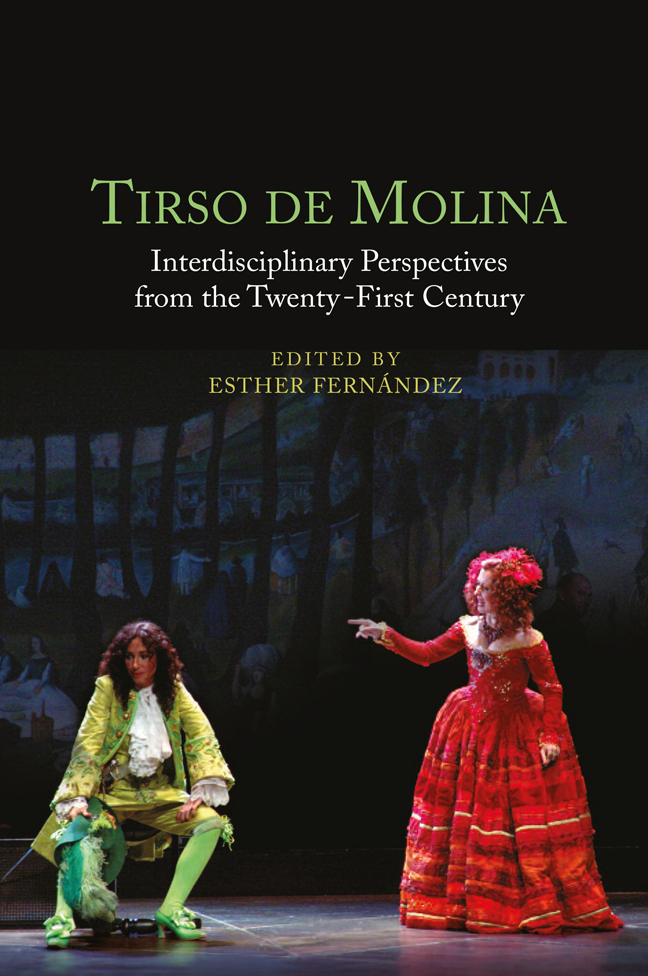6 - “Mozo soy y mozo fuiste”: Early Modern Conceptions of Age and Masculinity in El burlador de Sevilla
Published online by Cambridge University Press: 02 March 2024
Summary
This essay draws on masculinity studies in literary criticism to arrive at a more historically situated understanding of the Don Juan figure in the Tirso de Molina-attributed play El burlador de Sevilla y convidado de piedra [The Trickster of Seville and the Stone Guest]. Over the centuries, this famous play has led to countless iterations in varied artistic forms produced by a wide variety of creative geniuses, including Molière, Mozart, Zorrilla, and Byron while continuing to generate abundant artistic and literary activity today. Interestingly, the character of Don Juan has escaped the confines of the works of these artists and their historical, social, and cultural milieux and has come to represent the apotheosis of masculine debauchery, emerging as a generic term for a seducer and womanizer in the popular imagination and parlance. And, yet, this young serial sexual offender is not a timeless literary creation. Although the exact date of composition and authorship of El burlador de Sevilla has long been the subject of vigorous debate, with Tirso de Molina as the leading contender (Parr 2004: 138–163) and Andrés de Claramonte vying strongly for the title (Rodríguez López Vázquez 2020), this influential play is the product of Counter-Reformation Spain, a particular cultural moment and place that played a major role in the formation of normative masculine conduct. Constantly juxtaposed against the older characters who seek to thwart his sexual transgressions or look the other way, the figure of Don Juan in El burlador de Sevilla engages not only with some of the most pressing issues regarding early modern masculinity, such as the Counter-Reformation regulation of masculine sexuality, but also with the under-examined intersection of masculinity and age on the seventeenth-century Spanish stage and in wider early modern society.
Remarkably, for a play that gave rise to the term donjuanismo (Don Juanism) as a synonym for a womanizing masculinity of sorts, and that inspired many later artistic treatments of this toxic masculine trait, the construction of masculinity (or masculinities) in El burlador de Sevilla has received scant critical attention to date. In recent years, critical masculinity studies has emerged as an exceptionally vibrant interdisciplinary academic field that looks at masculinity as a dynamic and evolving category and as a discrete topic of scholarly inquiry.
- Type
- Chapter
- Information
- Tirso de MolinaInterdisciplinary Perspectives from the Twenty-First Century, pp. 86 - 99Publisher: Boydell & BrewerPrint publication year: 2023

